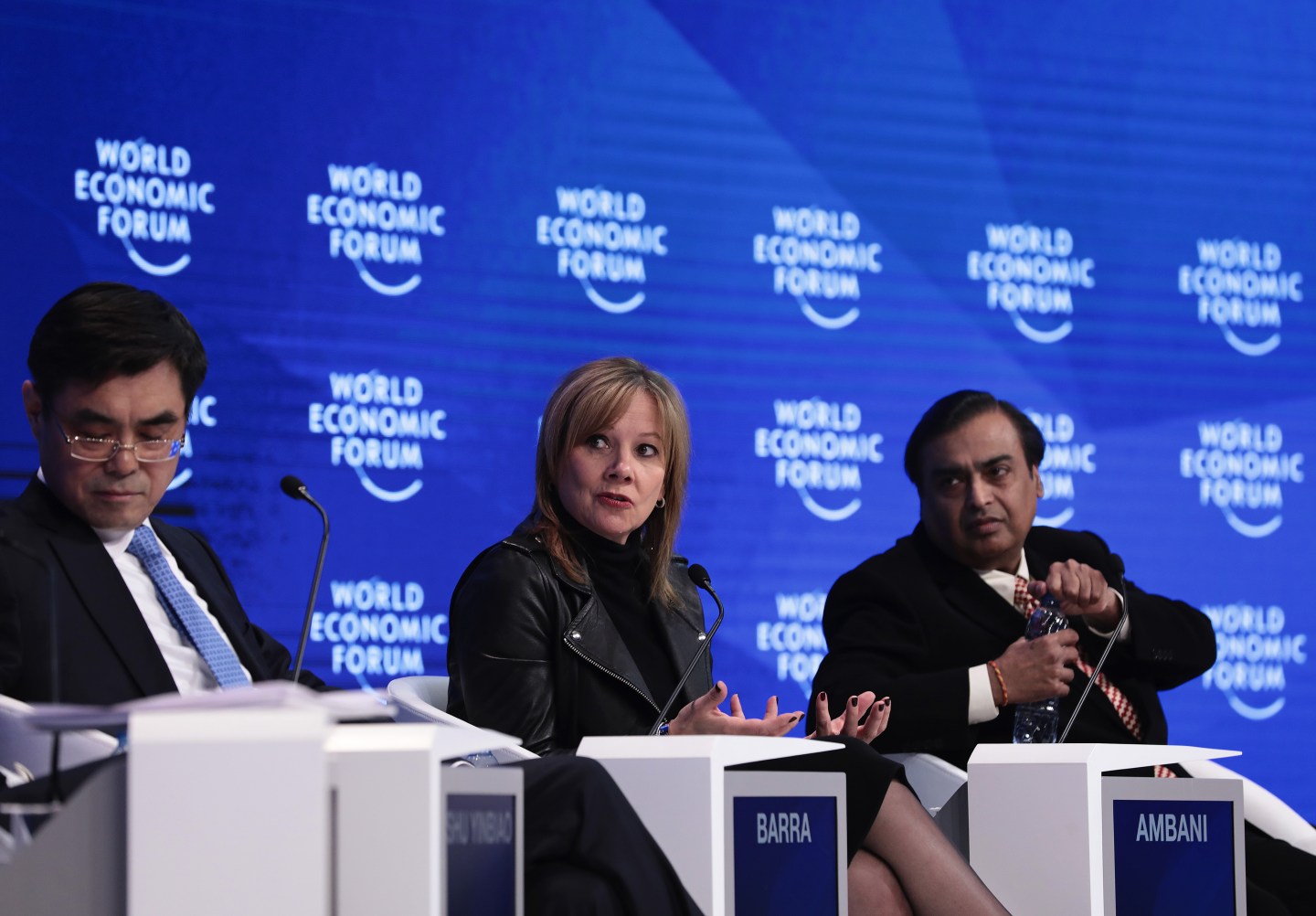‘Stereotype’ was the word of the day Wednesday among some women at Davos.
At a panel discussion, Reshma Saujani, founder and CEO of the non-profit Girls Who Code, pointed to antiquated gender norms as one factor keeping women out of tech. Because girls are sometimes conditioned to be more risk-averse, they can be turned off from math or computer science by the difficulty of the courses and the prospect of failing. Boys, meanwhile, are taught to be fearless, she said.
Women’s aversion to rejection manifests itself in the job market, said GM CEO Mary Barra. If GM has a job posting with—say—10 qualifications, women with nine of those requirements won’t apply, whereas a man who ticks six of the boxes will.
Women need to put themselves out there, she said.
At a separate panel, Facebook COO Sheryl Sandberg said it’s impossible “to overstate how important stereotypes are.” The problem is “at the root of the gender gap we face,” she said. She gave the example of assertive young girls being called bossy. Why not characterize them as having “executive leadership skills” instead?
There’s an urgency to the need to eliminate such tired typecasts. It’s especially acute when it comes to women in tech. Research from Accenture shows that if we maintain the status quo, the share of women in the U.S. computing workforce will actually get worse—from 24% now to 22% by 2025.
This essay first appeared in World’s Most Powerful Women, Fortune’s daily newsletter for global businesswomen.













